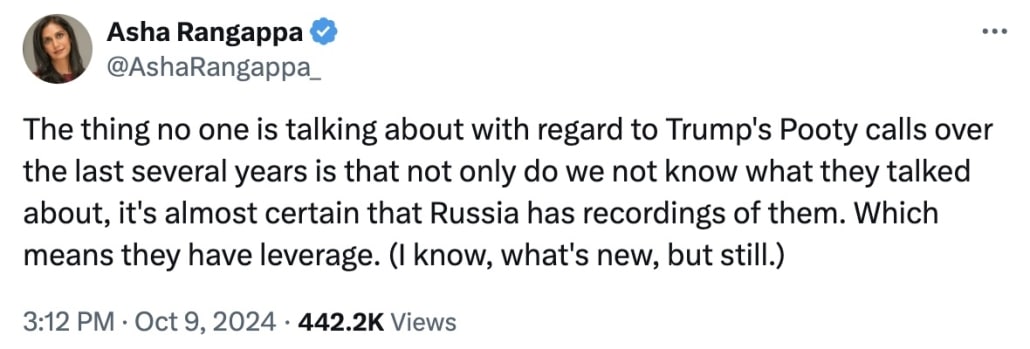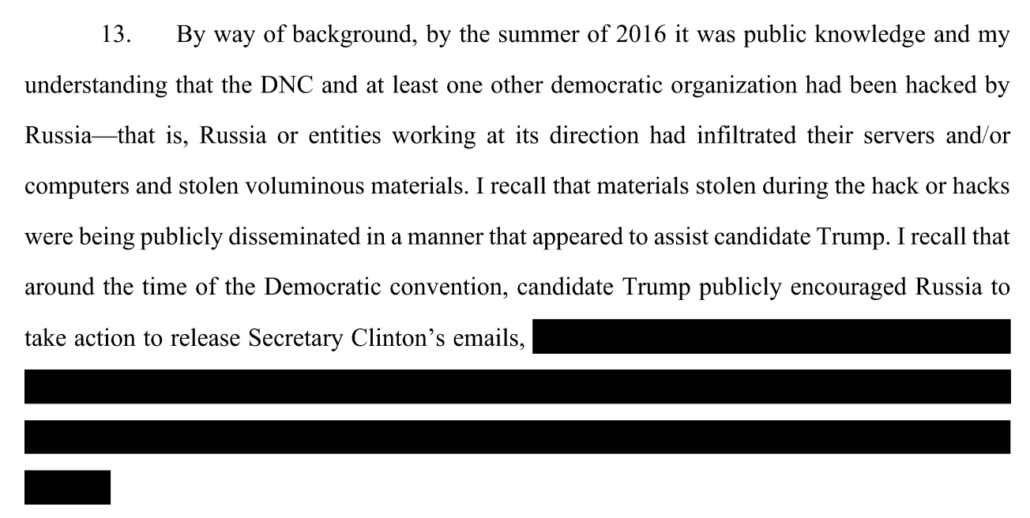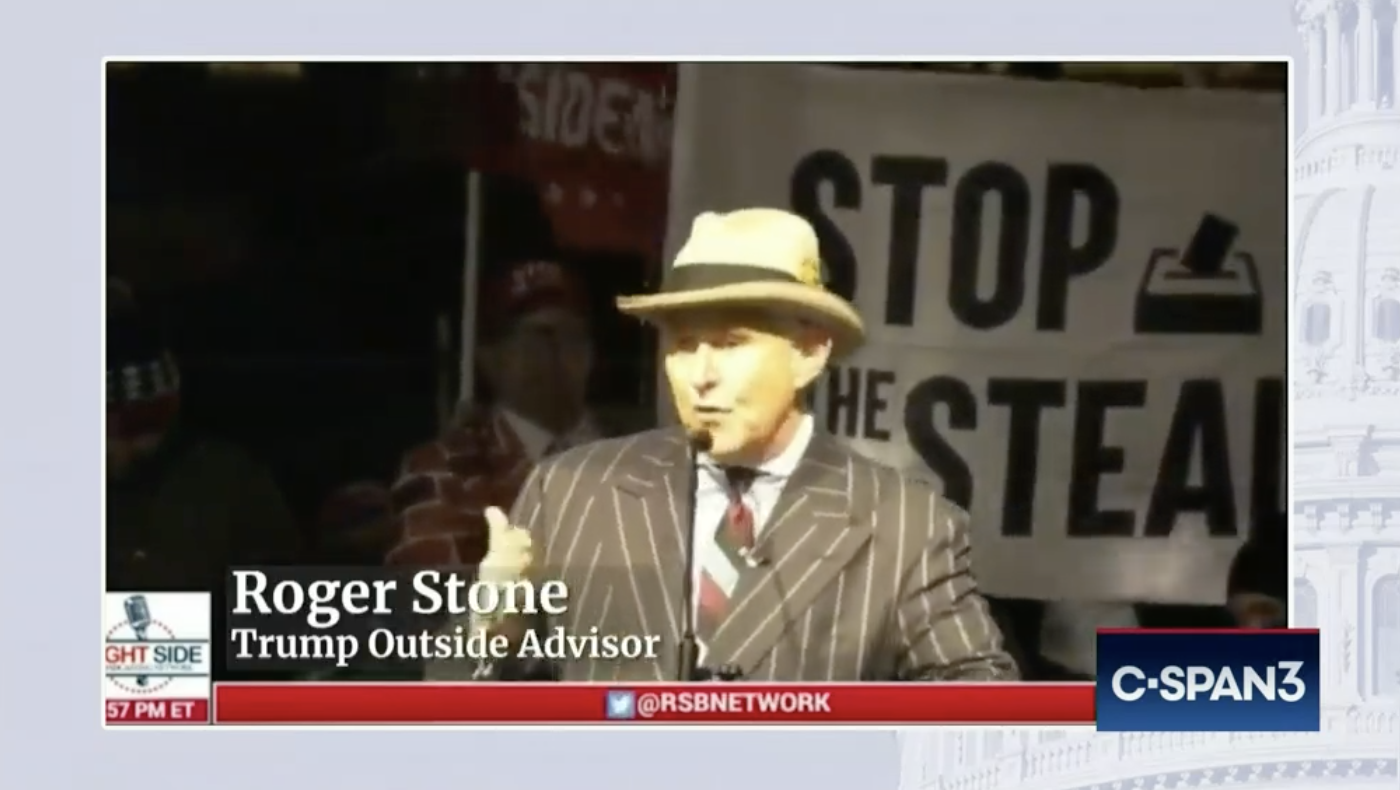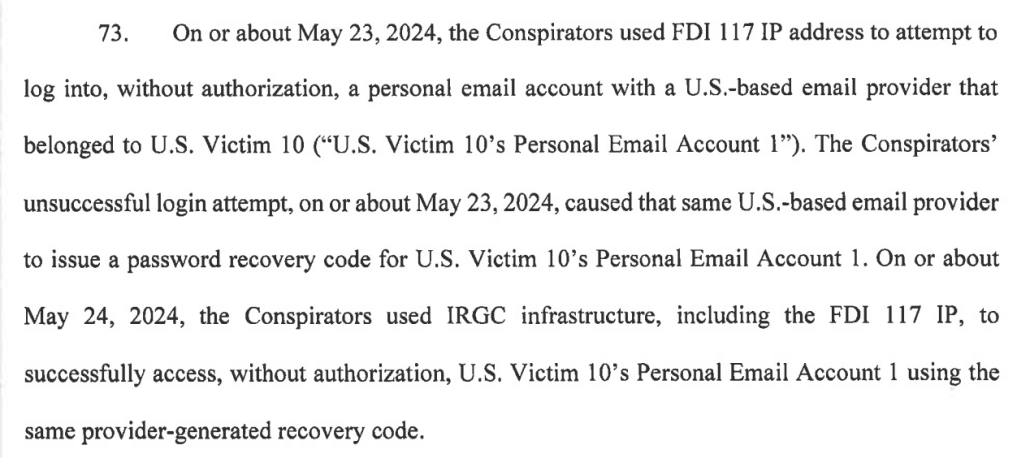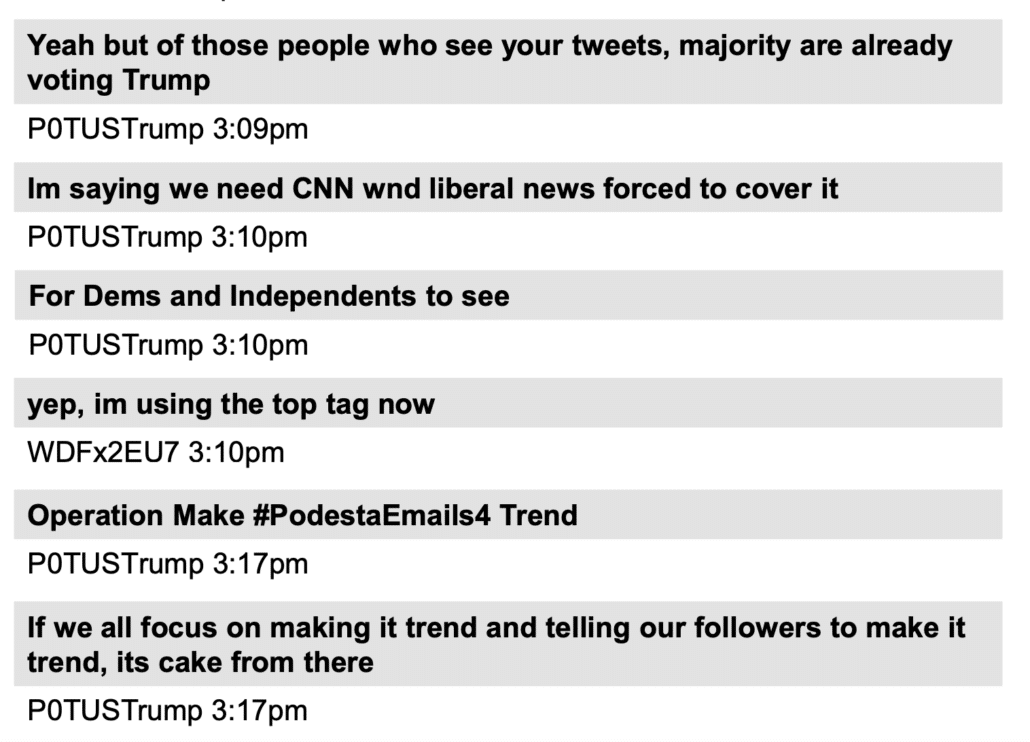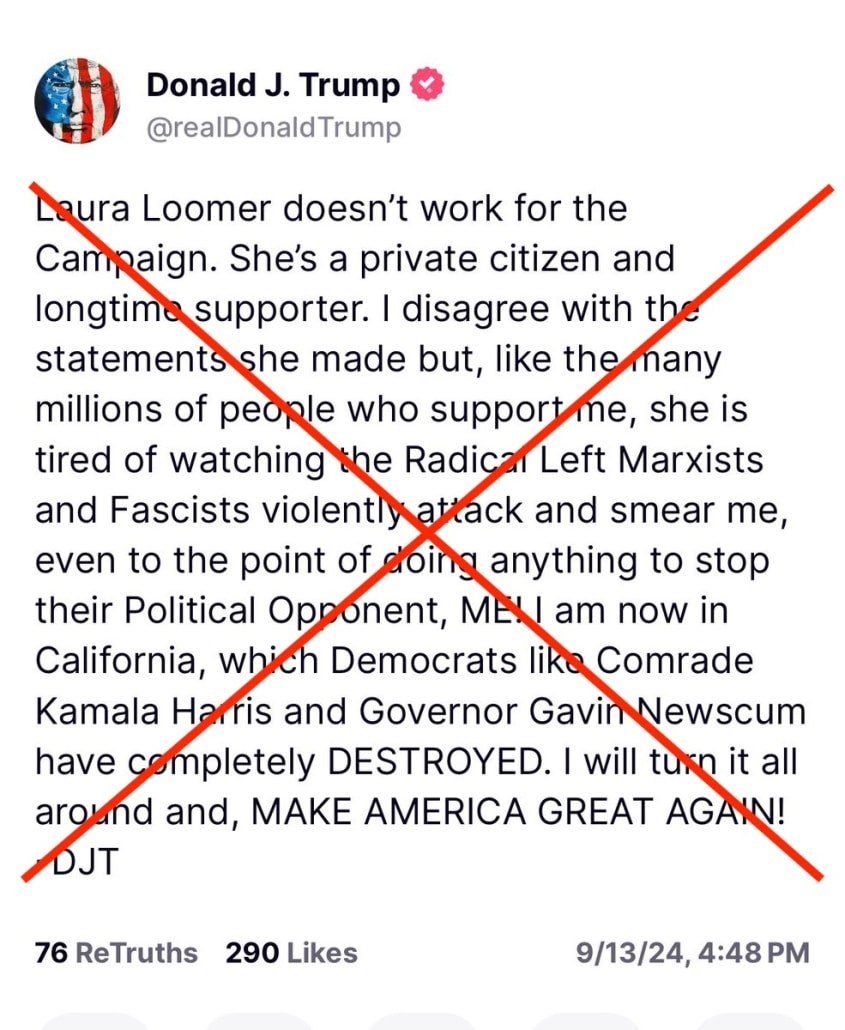Putin Has Convinced Trump He’s Keeping Trump’s Weakness Secret
“He gets played by them, because he thinks that they’re his friends and they are manipulating him full time … with flattery.” Kamala Harris
Here’s how WSJ described the Bob Woodward scoop that Donald Trump sent COVID testing equipment to Vladimir Putin rather than to Americans in need.
Woodward reports that one former intelligence analyst specializing in Russian affairs believed that Trump idolized Putin, making him open to manipulation. During the outbreak of Covid-19 in Russia, Trump secretly sent Putin some Abbott Point of Care Covid test machines for Putin’s personal use.
Putin then asked Trump never to mention it to anyone else, Woodward reports. “I don’t care,” Trump replied. “Fine.”
“No, no,” Putin said. “I don’t want you to tell anybody because people will get mad at you, not me. They don’t care about me.”
In this telling, there’s an intelligence analyst involved, someone who could be Woodward’s source.
It’s not just that Trump secretly sent Putin medical equipment that Americans needed. It’s that, presumably knowing full well the Intelligence Community would learn of that gift, Putin told Trump to keep it secret. “I don’t care,” Trump claimed. But he kept his KGB handler’s secret anyway.
He’s still trying to keep it secret.
You don’t need an intelligence analyst to tell the story of how easy it is for Vladimir Putin to manipulate Donald Trump. After all, HR McMaster documented Trump’s subjugation to Putin at length.
I was the principal voice telling him that Putin was using him and other politicians in both parties in an effort to shake Americans’ confidence in our democratic principles, institutions and processes. Putin was not and would never be Trump’s friend. I felt it was my duty to point this out.
[snip]
Trump wanted to call Putin to congratulate him on being elected to a fourth term as president of Russia. I explained that Putin’s victory had been rigged, thanks to the Kremlin’s control over the media, its quelling of the opposition, the disqualification of popular opposition candidates such as Alexei Navalny, and restrictions on election monitors.
A call was arranged anyway. The day before it, I told Trump I knew he was going to congratulate Putin, but that he should know that “the Kremlin will use the call in three ways: to say that America endorsed his rigged election victory, to deflect growing pressure over the Salisbury nerve agent attack and to perpetuate the narrative that you are somehow compromised.” I then asked Trump the following: “As Russia tries to delegitimize our legitimate elections, why would you help him legitimize his illegitimate election?”
But at this stage in our relationship, my advice on Putin and Russia had become pro forma. I knew that Trump would congratulate Putin and go soft on Salisbury. Trump took the early morning call from the residence. Because I had briefed him the day before, I listened in from my office. As expected, he congratulated Putin up front. After the call, Trump asked me, as he had before, to invite Putin to the White House.
On Face the Nation, McMaster described that he included all this in his book to try to demonstrate to Trump (or at least his hypothetical handlers in a second term) how successfully Putin was manipulating him.
MARGARET BRENNAN: When you got home, you said to your wife, “After [over] a year in this job, I cannot understand Putin’s hold on Trump.” How do you explain that now?
LT. GENERAL H.R. MCMASTER: Well, I explained it in the book. I try to place the president’s belief that he could have a good deal with Vladimir Putin in context of the two previous presidents who thought that they could have a good deal with- with Putin. But also, you know, President Trump, and people know this, he- he likes big splashy deals. He liked- he was pursuing that with Putin. He was pursuing that with Xi Jinping. And of course, Putin is the best liar in the world. And so I struggled, Margaret, should I write about how Putin tried to manipulate President Trump, or not? And I thought, well, Putin knows how he was trying to do it. So maybe in writing about how Putin was trying to press Donald Trump’s buttons, that will make a future President Trump, if he’s elected, less susceptible to those kind of tactics.
There’s been a lot of discussion about whether the intelligence community knows what a simp for Putin Trump is, knows about his ongoing calls with Putin.
The mention of the analyst at least suggests that the IC learned about the COVID testing equipment in real time, which is not surprising given that the equipment would have to be shipped somehow. Importantly, Trump’s KGB handler Vladimir Putin surely knew that it would be discovered. I’m sure the COVID testing kits were nice for Putin to have. The fact that Putin got Trump to prioritize Putin’s health over Americans, the fact that by keeping this secret, Putin ratcheted up the hold he had on Trump were probably far bigger gifts.
And that’s why I think Putin’s instructions to keep this secret are as important as the fact that Trump made efforts to care for Putin’s health as he neglected hundreds of thousands of Americans. It’s the control over all this information that Trump keeps ceding to Putin. As Asha Rangappa noted, Trump just keeps handing Putin ways to control him, willingly.
And now Putin is picking and choosing which of the secrets he has with Donald Trump he’ll make public. Oh sure, he sent me medical equipment at a time when Americans were struggling, Putin is effectively saying. But phone calls?!?! The seven phone calls that are bloody obvious from his claims about speaking to me about my dreams? Nyet! No phone calls, they didn’t happen!!
These tailored denials, hilariously, come from Dmitry Peskov, the guy whose call Trump and Michael Cohen criminally conspired to hide, the likely source for the false claim that appeared in the Steele dossier that the call to the Kremlin Cohen and Trump were hiding was not about real estate in January 2016, but was instead about cheating in an election in October 2016.
That is, I’ve long argued, one of the ways Putin has been wildly successful: not just getting Trump to simper to him like a teenager with a crush, but also to use Trump’s paranoia to heighten conflict in the United States over Trump’s ties to Russia.
Indeed, while Trump would have been preferable for Russia based on policy stances alone, Russia would prefer a weak Trump they could manipulate over a strong Trump any day. By the time of the 2016 operation, Vladimir Putin had already exhibited a willingness to take huge risks to pursue Russian resurgence. Given that audacity, Trump was more useful to Putin not as an equal partner with whom he could negotiate, but as a venal incompetent who could be pushed to dismantle the American security apparatus by playing on his sense of victimhood. Putin likely believed Russia benefitted whether a President Trump voluntarily agreed to Russia’s policy goals or whether Putin took them by immobilizing the US with chaos, and the dossier protected parts of the ongoing Russian operation while making Trump easier to manipulate.
Just as one example, Vladimir Putin knew the FBI was getting recordings of Sergey Kislyak’s calls with Mike Flynn — there’s even a moment when Kislyak’s assistant performs for the wiretap back on December 29, 2016. Putin knew that when he didn’t respond to Obama’s sanctions, the spooks would find those calls, leading to all manner of disruption for the US.
And that created a cascade of ongoing benefits for Putin, as Trump keeps denying Russia Russia Russia that he needed Russia’s help to win, and so keeps doubling and tripling down on his denials, even as he makes his capitulation to Putin readily apparent.
Russia’s 2016 intelligence operation and its aftermath may be the most successful intelligence operation in recent history, because Vladimir Putin has gotten Trump to believe that his KGB handler is hiding the proof he’s got of how weak Trump is, and Trump is desperate, to the core of his being, to pretend that his weakness is not obvious to all.
Update: Going to reup what I wrote just weeks after Helsinki.
Trump and the Russians were engaged in a call-and-response, a call-and-response that appears in the Papadopoulos plea and (as Lawfare notes) the GRU indictment, one that ultimately did deal dirt and got at least efforts to undermine US sanctions (to say nothing of the Syria effort that Trump was implementing less than 14 hours after polls closed, an effort that has been a key part of both Jared Kushner and Mike Flynn’s claims about the Russian interactions).
At each stage of this romance with Russia, Russia got a Trump flunkie (first, Papadopoulos) or Trump himself to publicly engage in the call-and-response. All of that led up to the point where, on July 16, 2018, after Rod Rosenstein loaded Trump up with a carefully crafted indictment showing Putin that Mueller knew certain things that Trump wouldn’t fully understand, Trump came out of a meeting with Putin looking like he had been thoroughly owned and stood before the entire world and spoke from Putin’s script in defiance of what the US intelligence community has said.
People are looking in the entirely wrong place for the kompromat that Putin has on Trump, and missing all the evidence of it right in front of their faces.
Vladimir Putin obtained receipts at each stage of this romance of Trump’s willing engagement in a conspiracy with Russians for help getting elected. Putin knows what each of those receipts mean.


